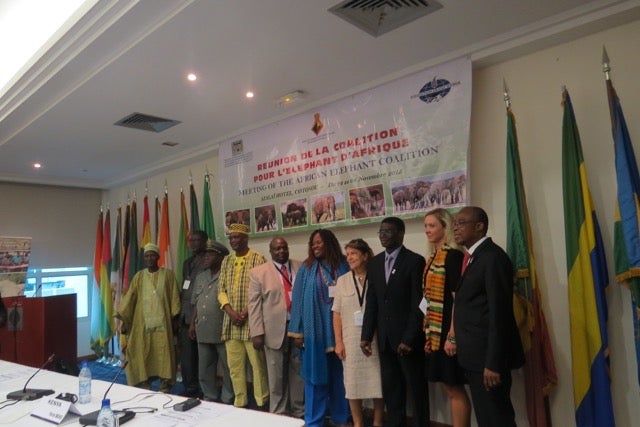African countries demand total ban on international ivory trade

Representatives of 25 African countries met in Benin last week to demand a total ban on the international ivory trade, in a bid to save the African elephant from extinction.
On 4th November, delegates met in Contonou, Benin, to launch the Contonou Declaration, which calls for a strict ban on all international and domestic ivory trading. As well as this, the declaration will ensure all African elephant populations are categorised as critically endangered, by promoting them to Appendix I on the Convention on International Trade in Endangered Species (CITES) list.
Delegates called for stronger collaboration between member states of The African Elephant Coalition, in order to secure the highest possible protection available for African elephant populations under international law, and encourage other countries and organisations to support the proposal.
The African Elephant Coalition, founded in 2008, is made up of 28 African countries united in their common aim to preserve a “healthy elephant population free of threats from the international ivory trade.”
“Protecting African elephants is of great importance for the whole world, and in particular for African countries”, said his Excellency Mr Théophile Worou, Minister for the Environment in charge of Climate Change, Reforestation and the Protection of Natural and Forest Resources of Benin, at the end of the three-day meeting. “All necessary resources must be mobilized to ensure the survival of the African elephant”.
The African elephant is facing its worst crisis since 1989, when all elephant populations on the continent were listed on Appendix I of CITES, banning international ivory trading. Protection was weakened in 1997 and 2000 when populations in four Southern Africa countries (Botswana, Namibia, South Africa and Zimbabwe) were demoted to Appendix II - a less endangered status - to allow two sales of ivory stockpiles in 1999 and 2008.
African elephants are still being poached for their ivory, and hundreds of thousands have been killed in the last decade. If this rate of poaching continues, the African elephant could be extinct within our lifetimes.

Join our commenting forum
Join thought-provoking conversations, follow other Independent readers and see their replies